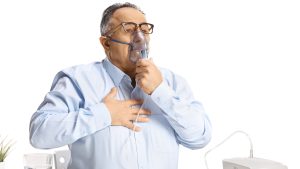Articles / Distress from global conflicts on the rise

Fifty per cent of GPs have seen a rise in patient distress levels related to global conflicts, a recent Healthed survey of more than 2,300 GPs found.
While over a third of respondents reported a slight increase, more than one in ten reported observing a significant increase in distress or other medical concerns they attribute to conflicts in places such as Palestine, Ukraine and Sudan.

The Australian Psychological Society (APS) says it is not just those directly impacted by war and war crimes who experience adverse effects.
“Many people will find the news and images of the conflict extremely upsetting, and for some, old traumas will be reactivated,” the APS said in a statement on the Israel-Palestine crisis, noting that it comes at a time when many Australians are already experiencing psychological strain.
Some people may be particularly vulnerable to distress. Those at increased risk may include current and former service men and women, people who have experienced war or displacement, and those with personal or family ties to places where conflict is occurring.
Australians with ancestral links to homelands affected by war or violence may experience “long distance suffering and devastation,” Professor Nicholas Procter explains in an article in The Conversation.
“Diaspora migrant groups should not be seen as isolated from their country of origin,” he writes. “Rather, they are subject to global influences over their personal and social life, their health and well-being.”
As such, they “can identify completely with the pain and anguish they see and hear.”
Apart from referring patients who are experiencing distress to mental health support services—especially those who may be at risk of being re-traumatised—the APS suggests some other strategies that can help.

Managing Prostate Cancer Treatment Update

RSV, Respiratory Viral Infections and the Heart – Exert Panel

Thyroid Disease in Pregnancy


Strongly support
Somewhat support
Neither support nor oppose
Somewhat oppose
Strongly oppose
Listen to expert interviews.
Click to open in a new tab
Browse the latest articles from Healthed.
You have completed the Educational Activities (EA) component of this activity.
Select ‘Confirm & claim CPD‘ to confirm you have engaged with this activity in its entirety and claim your CPD.
You will be taken to explore further CPD learning available to you.